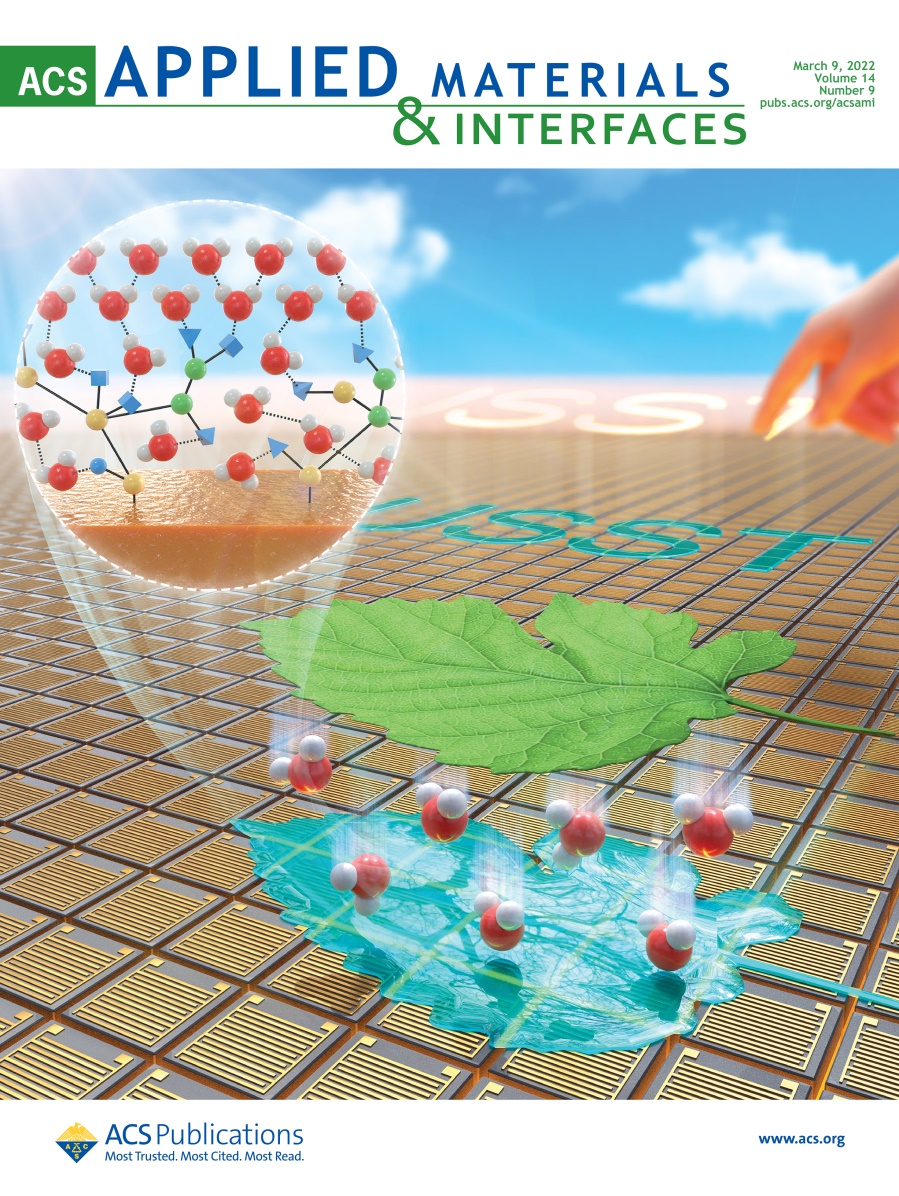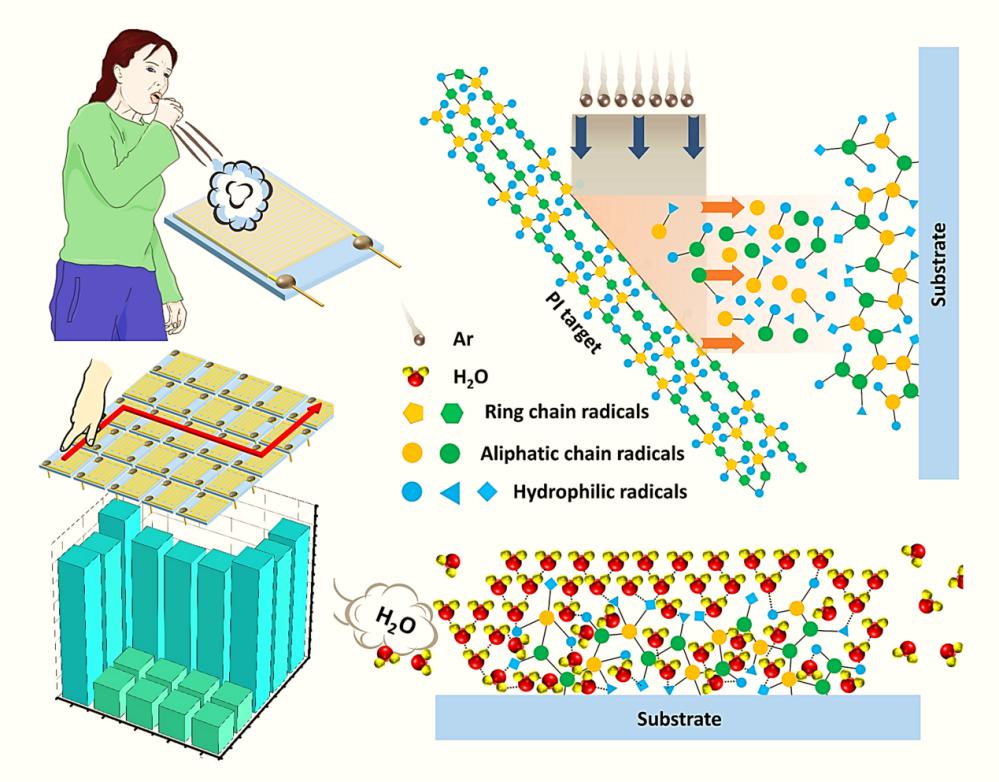Recently, the ultra-precision optical manufacture innovation team led by Academician Zhuang Songlin and Professor Zhang Dawei published an academic paper in an international top journal ACS Applied Materials & Interfaces (IF: 9.229). In this study, respiratory monitoring and noncontact sensing polyimide-sputtered and polymerized (PSP) were successfully realized. Dr. Chen Shangbi, Senior Engineer of Shanghai Academy of Spaceflight Technology, took part in the research. Dr. Sheng Bin from the team was the corresponding author.

Respiratory monitoring and contactless sensing using the moisture produced by respiration and perspiration have garnered considerable attention in recent years. In this study, we fabricated polyimide-sputtered and polymerized (PSP) humidity sensors with ultrahigh capacitive sensitivity, fast response, and a wide working range of relative humidity (RH). The sensors produced >40 000 times increment in the sensing signal over the 10–95% RH range at 10 Hz and exhibited good performance at low RH levels (<40%) as well. These sensors displayed excellent sensing properties with small hysteresis, long-time stability, and fast response and recovery times (2.4 and 1.2 s, respectively). In the mechanism study of PSP humidity sensors, we found that the high sensitivity can be attributed to massive hydrophilic functional groups formed on the polymer chains by moist aging with oxidation and the fast response speed is due to the mesoporous structure of PSP films. We also fabricated a 5 × 5 array of PSP humidity sensors to identify the shapes of wet objects and of leaves during transpiration. Thus, we reported a novel and effective method for fabricating high-performance humidity polymer films, channeling new pathways for the development of advanced humidity and gas sensors.

Link to the paper: https://doi.org/10.1021/acsami.1c24833

 Home
·
News & Events
·
Content
Home
·
News & Events
·
Content

